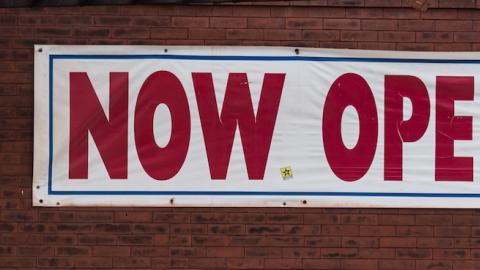Start-up formation is down to historic lows, the WSJ reports:
Job gains from new firms are at the lowest share of employment in over 20 years, another sign of the declining role entrepreneurship plays in the U.S. economy.
Job gains from opening establishments as a percentage of overall private-sector employment dropped to 1% in the first quarter of 2016, the lowest level recorded since the Labor Department began the data series in 1992, and half what it was at its peak.
Throughout the 1990s, the share hovered between 1.6% and 2%, and edged lower throughout the subsequent decade. Since 2009, when the economic recovery began, it held between 1.1% and 1.3%.
A decline in start-up activity is one of the worst possible sign for the future of the U.S. economy, and it points to the corrosive consequences of government by people who don’t grasp the cost of regulations and paperwork.
It's true that this part of a much longer trend. But there are lots of reasons to think that the trend ought to have been reversed under President Obama's watch. Low interest rates made capital cheaper, and an oversupply in the labor market and stagnant wages meant that workers were relatively cheap. An explosive increase in computing power and information processing, along with continuing decline in the price of hardware, all should have meant a massive surge in start-ups and new business.
It hasn’t happened. The start-up sector withered. Obama’s own economic advisors are telling him that this increases inequality. Democrats asking themselves why Clinton lost shouldn’t ignore this trend. If start-ups had continued to add jobs as their historic rates the jobs and wage picture would have been much brighter.
There are several causes for these problems, but one of the most important is the ever-growing burden that government regulations—federal, city and state—place on new businesses. Established firms can hire people to fill out the compliance forms, dance the intricate bureaucratic dances, manage the waiting times and the other costs associated with compliance. But new entrepreneurs can’t. And even if interest rates are low, the paperwork imposed on banks by various well-meaning but counterproductive regulations makes it more expensive both for banks to give credit to start-ups and for entrepreneurs to get the loans new businesses often need.
This is a test for the Trump Administration: can the decline in start-ups and new jobs be reversed? Working on it should be one of the most important priorities of the incoming administration. The health of the start-up sector is one of the most important indicators telling us whether or not we are on the right track. Right now, we are on the wrong track; that needs to change.














